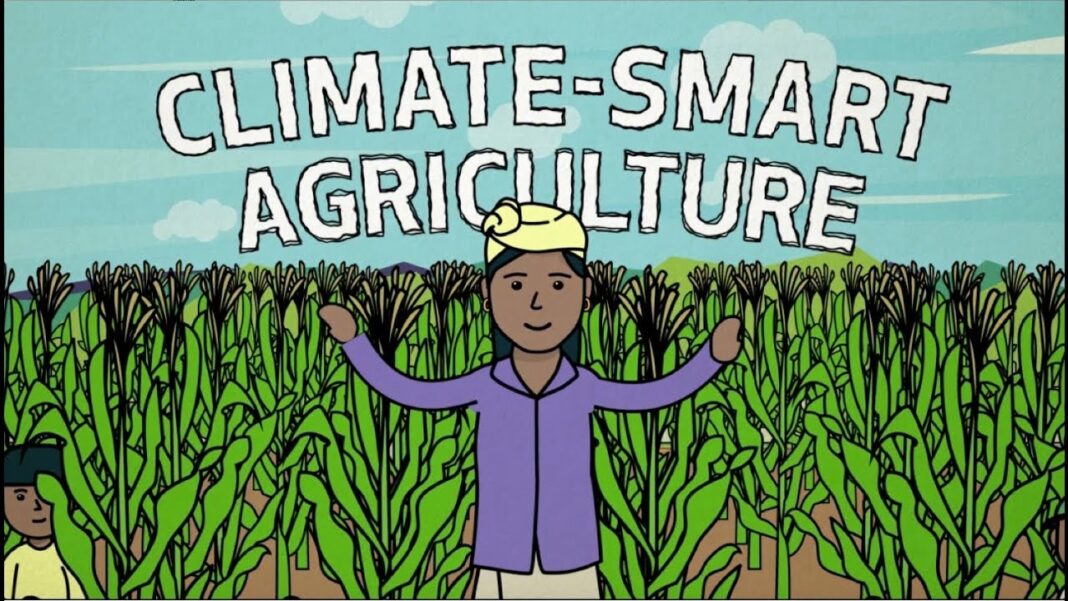ISLAMABAD: Climate smart agriculture practices can assist Balochistan province in ensuring food security and preserving water resources, said experts.
They said that focusing on the less developed and underprivileged areas of Balochistan will help stop migration from rural to urban areas.
Dr Hanifur Rehman, Associate Professor, Department of Environmental Sciences at the University of Turbat, said while talking to WealthPK that adoption of modern techniques, biotechnology practices, and genetically modified organisms (GMOs) will help increase the per capita productivity in agriculture sector, and ensure food security in Balochistan. He said promoting the adoption of high-efficiency irrigation systems (HEIS), such as drip, bubbler, sprinkler, rain guns, and centre pivot will help with efficient utilisation of scarce water resources.
Dr Hanif said the much-needed water policy should be formulated as a comprehensive document that covers all aspects regarding water availability, usage, transmission, recycling, and sewage treatment. He said the policy should have a time-bound objective that clearly enlists development interventions required across the province over the coming years.
He said that during the last two decades, most of the lush green pastures of Balochistan have turned into barren lands due to a lack of water. He pointed out that the underground water level continues to deplete fast in Quetta, Pishin, Qilla Abdullah, Kalat, Mastung, Khuzdar, Loralai, and other districts of the province.
Dr Hanif was of the view that a large part of land in Balochistan can be used for agriculture if artificial intelligence practices are adopted, which would enable the province to deliver the same productivity in agriculture that Punjab province does.
Dr Muhammad Aslam, Dean Faculty of Marine Sciences at Lasbela University, told WealthPK that agriculture, water, and climate are interconnected. He said climate change affects water availability and agricultural productivity.
He said only 6% of land in Balochistan is cultivable due to less availability of water, and the root cause of water shortage is mismanagement of water use in irrigation and installation of an excessive number of solar tube wells.
“Due to the lack of research-based agriculture institutes in Balochistan, we failed to introduce modern practices,” he said.
Dr Aslam said urbanisation is the major issue that requires immediate attention for the future socio-economic development of the province.
Moreover, he stated that in order to stop migration from underprivileged areas of Balochistan, the government must actively support development programs such as overall water security, energy sufficiency, infrastructure development, and agricultural development to provide the same opportunities available in urban areas.
Akbar Khan Khajjak, Research Officer at the Water Management and High-Efficiency Irrigation System, Quetta, told WealthPK that there was a need to integrate policies covering water laws and flood disaster management to boost storage capacity, water productivity, and protect the country from devastating floods. He said these steps will increase agriculture productivity to achieve sustainable economic development.
Akbar mentioned that Balochistan has an area of 347,190 km², forming 43.6% of the total area of Pakistan, with a cultivated area of 21,000 km², out of which 9,800 km² is irrigated, whereas 8,000 km² is flood irrigated, and 2,600 km² is rain-fed area. He said there are vast agricultural areas in the province that can be developed with the availability of water.
He said Balochistan is highly vulnerable to climate change because of extreme events and erratic monsoon patterns that cause frequent and intense flooding. He said the rise in temperature will affect agriculture productivity in arid and semi-arid regions. He said deficient availability of water will increase stress between the upper and lower riparian due to the sharing of scarce water resources. He said a comprehensive strategy is needed to efficiently deal with the situation. He emphasised the need for formulation and enforcement of water conservation strategies along with integrated water resource management and development.
Akbar said that addressing water issues requires intervention at the individual and state-level, focusing on both the demand and supply sides. He said the household, industrial and agricultural sectors must use water efficiently and judiciously.





